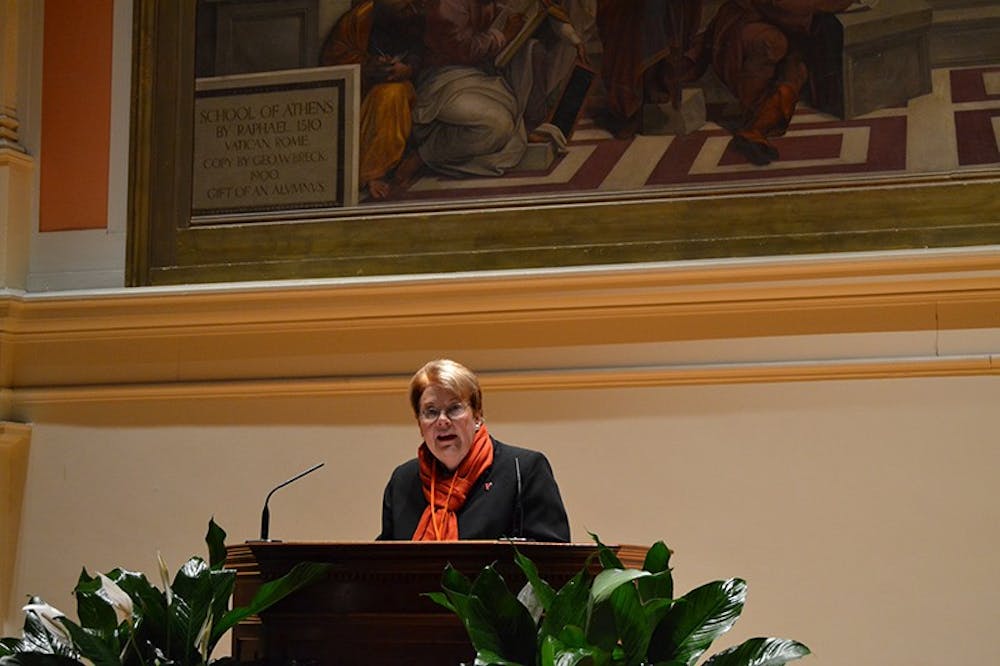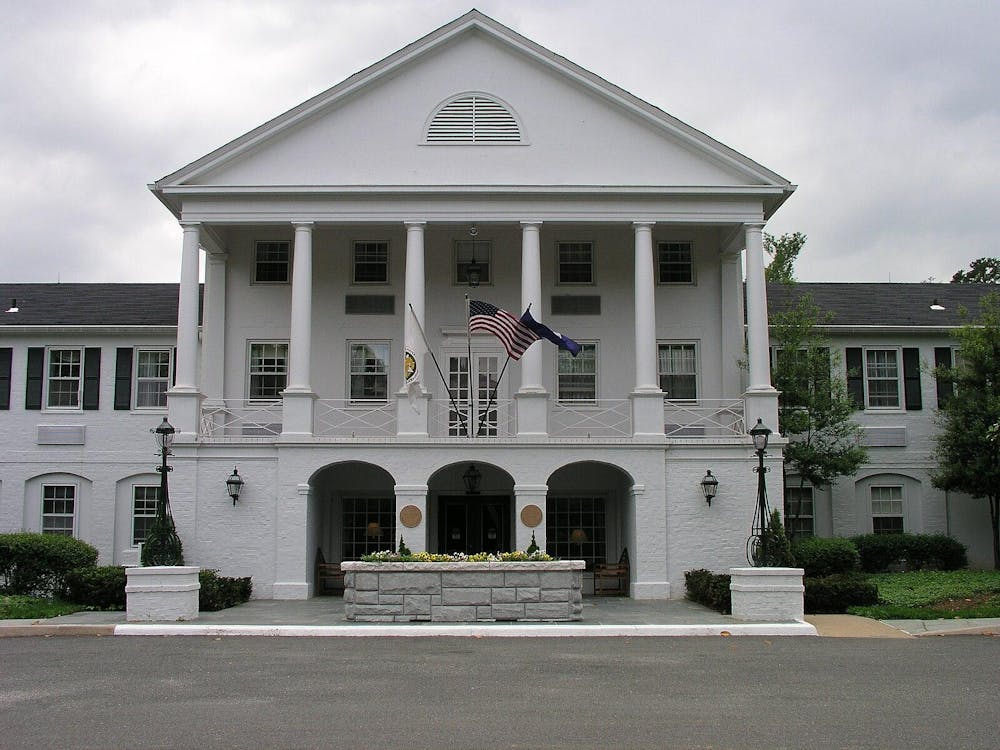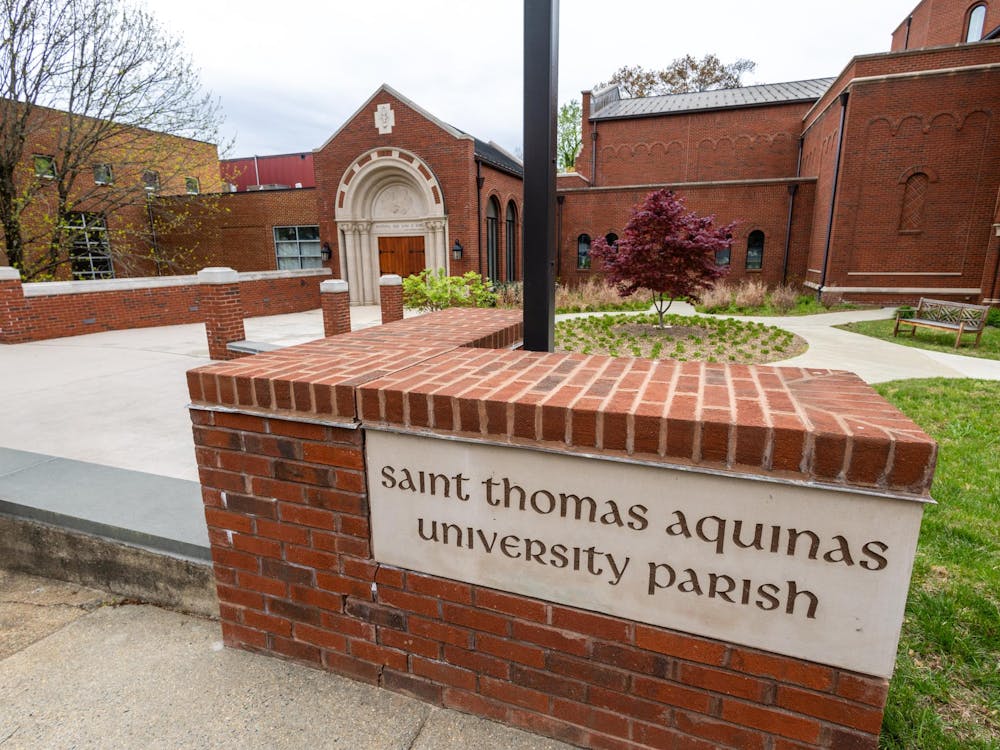Monday marked the beginning of a two-day national conference concerning sexual misconduct on college campuses hosted by the University.
As President Barack Obama announced the formation of a task force in January to address the recent increase in sexual assaults on campuses, the University was in the final stages of planning the conference, “Dialogue at U.Va.: Sexual Misconduct Among College Students,” through the efforts of University President Teresa Sullivan and Patricia Lampkin, vice president and chief student affairs officer.
Obama’s task force found one in five college students is likely to be sexually assaulted during his or her time at school, leading some to describe the situation as an epidemic.
“The intention of this two-day dialogue is to launch a national discussion among higher education communities on the complexities surrounding sexual misconduct among college students,” Sullivan in a message on the conference’s website. “Our hope is to look at issues through a multifaceted lens, including individual, cultural, social and legal perspectives.”
The conference brought together a wide range of sexual misconduct experts who specialize in issues ranging from education, prevention, adjudication and treatment of victims. Members of the Department of Education, prosecutors and leaders from universities across the country also participated. Overall, 23 states and the District of Columbia were represented, along with representatives from 78 different institutions of higher education.
In her opening remarks, Sullivan began by pointing out that sexual misconduct undermines some of the highest principles espoused by higher learning.
“We’re here because we agree we’re facing a major problem,” Sullivan said. “We need to talk about this issue on many levels, including the level of institutional accountability. We want to make changes to a culture that fuels sexual misconduct. First, we need to start the conversation, then turn the conversation into action, then work to make sure the actions change the culture.”
Following Sullivan, keynote speaker Linda Fairstein addressed the audience about legal responses to sexual misconduct. Fairstein is a lawyer, best-selling crime novelist and former prosecutor, and is regarded as one of America’s leading experts on crimes of violence against women and children.
Fairstein focused on the need to adjudicate sexual assault crimes in the criminal justice system, rather than through university-based systems, and on the criminal justice community’s own shortcomings in addressing cases of sexual assault.
“[The] number of occurrences [of sexual assault] — that is simply unacceptable in any society that calls itself civilized,” Fairstein said. “So many young women remain reluctant on campuses to report the crimes [because] the historical response to these crimes has traditionally been so bad in the criminal justice system.”
Following the keynote address, conference participants were given the choice to attend one of four breakout sessions, ranging from “Causes and Effects of Alcohol on Sexual Misconduct” to “Being a Better Bystander and Understanding Stalking.” Afterward, Catherine Lhamon, assistant secretary for civil rights at the U.S. Department of Education, spoke during lunch.
Six university presidents then gathered to answer questions in a forum moderated by Hunter Rawlings III, president of the American Association of Universities.
Participating presidents included Sullivan, Gene Block of the University of California at Los Angeles, Royce Engstrom of the University of Montana, Carol Folt of the University of North Carolina at Chapel Hill, Philip Hanlon of Dartmouth College and Carolyn “Biddy” Martin of Amherst College.
Sullivan’s stated goal for the panel was to spur candid conversation about sexual misconduct on campuses, even though the topic is typically nuanced and emotionally charged. Students and audience members also offered panelists their input during the session’s question and answer portion.
“What is needed is what, at universities, we do best — … multidisciplinary approaches,” Folt said in her opening remarks. “It requires research — that’s what we do; that’s in our DNA. It requires an engaged community.”
Rawlings asked panelists to address the concept of effective consent and the challenges universities have in defining the term. Each panelist touched on the difficulties therein, but recognized it is the university president’s job to set expectations.
Rawlings also asked the panel to address the common claim that university leaders sweep matters of sexual misconduct out of the spotlight.
“The action of the president is crucial to get out in front of this [claim] immediately and proactively — tell the world as much as you can within the constraints of the legal system,” Engstrom said.
Martin also brought up the phrase “insularity of the community” in regards to disclosures of sexual misconduct cases. In an insular community, she said, individuals’ loyalties can lead to barriers of openness, making it hard — but still necessary — to hold people accountable.
The panel was then asked to discuss issues of confidentiality when dealing with cases of sexual misconduct. Hanlon pointed out the tension between maintaining the expected amount of confidentiality and effectively addressing community concerns after an assault occurs.
The panel concluded by addressing the suggested correlation between cases of sexual misconduct and drinking, drug use and hookup culture.
“Attributing causality is really difficult,” Hanlon said. “But excessive drinking, drug use and violence are all student safety issues, and we need to address all of them.”
Martin pushed back against this suggestion.
“What makes me uncomfortable is the implication that the way students socialize now must be cause of problem, which can’t be true because problems existed when we were in college, even though we supposedly didn’t have hookup culture,” he said.
Following a second breakout session, the first day of the conference concluded with a reception and dinner followed by a screening of “Spitting Game: The College Hookup Culture” and an accompanying panel discussion featuring University student leaders.







